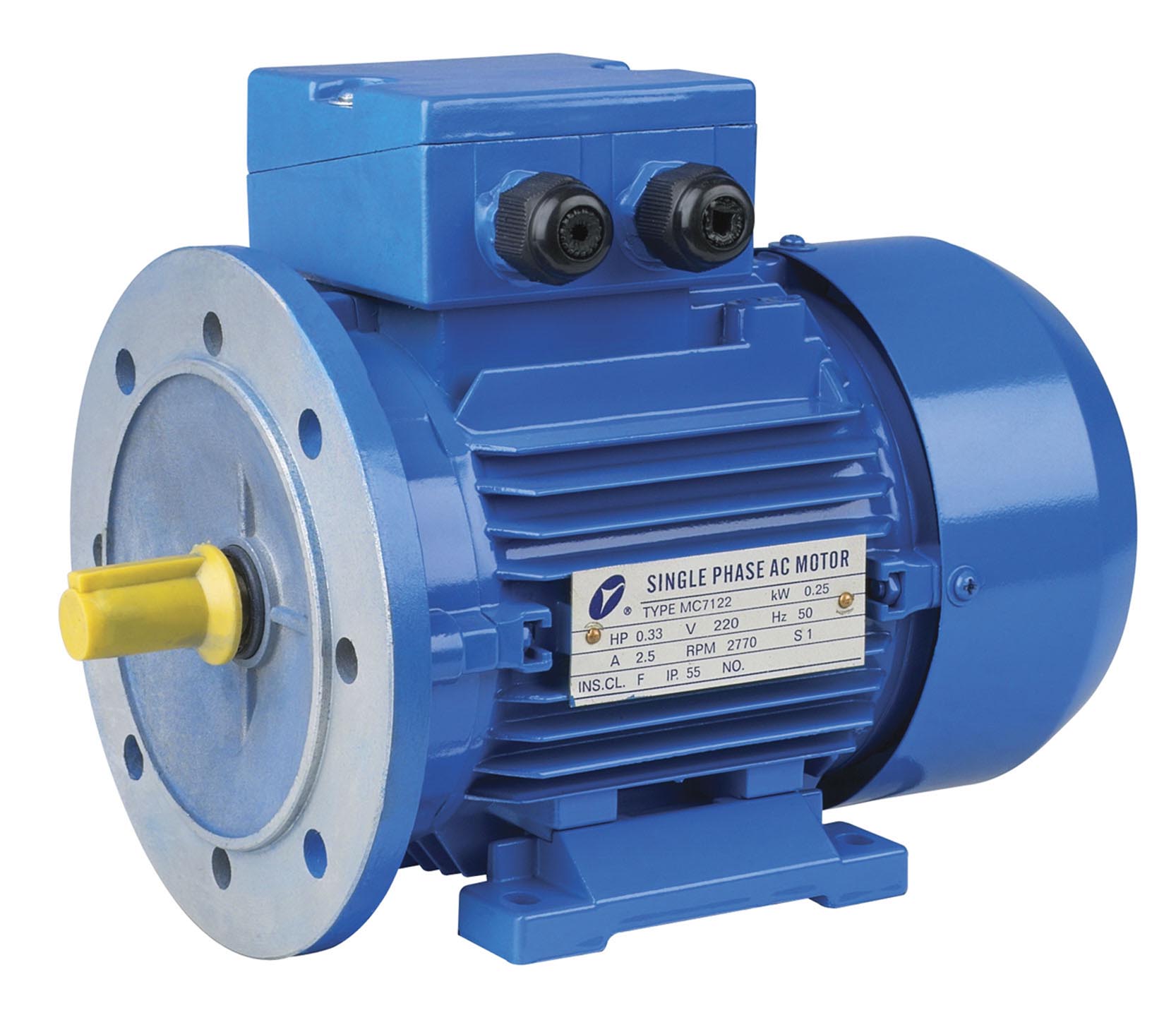MFL Series
Permanent Magnet Electrical Motors
LSSM: Line-Start Synchronous Machine
Synchronous motors use a three-phase sinusoidal voltage source to induce a rotating magnetic field in the stator. Applying this three-phase sinusoidal voltage source to the stator winding of a synchronous motor yields the rotational magnetic field in the air gap. The permanent magnet poles mounted on the rotor try to align in this rotating field, producing a synchronous torque on the rotor. Upon starting, the damping winding on the rotor generates the asynchronous starting torque, creating a self-starting feature.
The motor is started the same way as for an induction motor, by using a squirrel-cage-type winding -- called a damper winding in this case -- that is mounted on the rotor, producing the starting torque.

